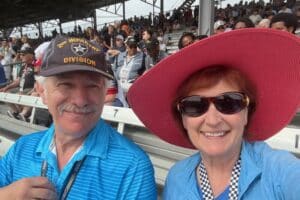Hajjah Launches Solar-Powered Labs to Enhance Technical Education
In a pretty big step for technical education and green energy, Dr. Abdullah Adhabi—who heads the Technical Sector in Hajjah Governorate—opened solar-powered computer and sewing labs at Al-Thawra and Arwa Technical Institutes. The technical sector funded this project to help students pick up real-world skills, slash energy bills, and push for alternative energy use.
Key local leaders showed up for the event, which really felt like a turning point for technical education in Hajjah.
Table of Contents
Importance of Solar-Powered Labs in Technical Education
Dr. Adhabi talked about why bringing solar power into schools matters so much. By switching to renewables, these institutes can save a lot on running costs and make learning more affordable for everyone.
That’s especially important now, considering how tough it is to get reliable electricity in the area.
Benefits of Solar Energy
Solar power brings a bunch of perks, especially for schools and training centers:
- Cost Reduction: It cuts down electricity bills, so more money can go to books, equipment, and teachers.
- Environmental Impact: Using solar energy means less pollution and a smaller carbon footprint. That’s something everyone can get behind.
- Reliability: Solar panels offer steady power, which is a lifesaver when you need classes to run on time.
Empowering Students with Practical Skills
But this isn’t just about saving on energy. Dr. Adhabi wants students to get their hands dirty and learn skills that actually matter in today’s job market.
He encouraged young people to sign up and get that hands-on experience employers are looking for.
Focus on Technical Skills
The computer lab will run courses in different IT fields. Students will get to learn:
- Programming and software development
- Network administration
- Cybersecurity
At Arwa Institute, the sewing lab will cover:
- Garment construction
- Pattern making
- Textile design
Community and Leadership Support
Issam Al-Wazzan, director of the Central District, and Mutahar Safi Al-Din from the Martyrs’ Families Care Authority also attended. Their presence showed that local leaders really care about growing technical education and backing community-driven projects.
Leadership’s Role
Ahmed Al-Dawli, dean of Al-Thawra Institute, and Samar Al-Aour, dean of Arwa Institute, thanked the local leadership for sticking by them. They pointed out how much these efforts help the region’s education and overall growth.
Showcasing Student Achievements
After the ribbon-cutting, the officials toured the sewing lab at Arwa. They checked out a bunch of student-made goods, like:
- School and women’s bags
- Uniforms
- Clothing
- Children’s items
It’s honestly impressive to see what the students have made. You can tell they’re ready to make a real impact on the local economy.
Future Prospects and Ongoing Plans
Dr. Adhabi said this project is just one piece of a bigger plan to keep supporting technical institutes and raise the bar for education. He expects more schools will jump on board with alternative energy, making them more independent and eco-friendly.
Encouraging Enrollment
The technical sector is working to get more students to join these institutes. Learning practical skills can open doors to better jobs and help boost the region’s economy, so it’s worth considering.
Conclusion
The inauguration of solar-powered computer and sewing labs at Al-Thawra and Arwa Technical Institutes marks a big step forward for Hajjah Governorate.
It really shows how renewable energy can shape education and why hands-on skills matter for students.
If you want to dig deeper, check out the full article on the Saba News Agency website.

